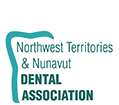 Dr. Robert MacGregor
Dr. Robert MacGregor
As part of CDA's restructuring process, the CDA Board asked our provincial partners what they felt should be the top priorities of their national organization. The responses overwhelmingly came back requesting that CDA be active in government relations, media relations and public relations. Acting on this feedback, CDA has refocused its activities on the 2 key areas of knowledge and advocacy. Access to care for children and seniors will be the primary focus of CDA's advocacy activities in the short term. However, CDA remains active on other issues within the government relations domain.
Most recently, CDA received letters of acknowledgement related to our advocacy efforts on a mercury control treaty and on the oral health of First Nations. The first letter of support was from Peter Kent, the federal minister of the environment, about negotiation meetings taking place at the United Nations. The United Nations Environmental Program (UNEP) is taking steps toward implementing a worldwide ban on all mercury-containing products. While the negotiations are still in progress, CDA continues to liaise with Environment Canada and Health Canada to encourage the exemption of medical devices from any global legally binding instrument on mercury.
The importance of the support CDA received from Peter Kent cannot be overstated, as inclusion of medical devices as part of the UNEP mercury control treaty could potentially render dental amalgam unavailable for use in Canada by 2015. That would certainly have a negative effect on the dental health of many Canadians.
CDA was also recognized recently by the Assembly of First Nations (AFN) for our efforts to improve the oral health of First Nations people. This is a long-standing issue and one that CDA has been working on actively for many years. However, both the providers and recipients of dental care through the Non-Insured Health Benefits (NIHB) program have expressed concerns with some of its limitations. Through ongoing discussions with Health Canada, CDA has been successful in trying to ease the administrative burden of the NIHB program along with expanding the services it provides. In 2011, these advocacy efforts led to a voluntary 2-year trial process to include posterior endodontic treatment as basic treatment under the NIHB plan.
The oral health of First Nations people is often a topic of discussion at CDA's annual Days on the Hill meetings. CDA now invites representatives from the AFN to attend these meetings with parliamentarians, to help reinforce our messages and to raise awareness about oral health issues within the Aboriginal community. It is my expectation that these joint efforts will continue in future years, and that further improvements in the NIHB program may result from our combined efforts.
This strategic cooperation between CDA and the AFN is a good example of the working relationships that CDA has pursued with other stakeholders and organizations in recent years. Currently, CDA has ties with the Canadian Coalition for Action on Tobacco and the Retirement Income Improvement Coalition. These are just some areas of ongoing advocacy that your national association provides for the profession. Rest assured that CDA will continue to foster strong relationships with the federal government, its committees and other related organizations to bring issues at the heart of Canadian dentistry to Parliament Hill and beyond.











